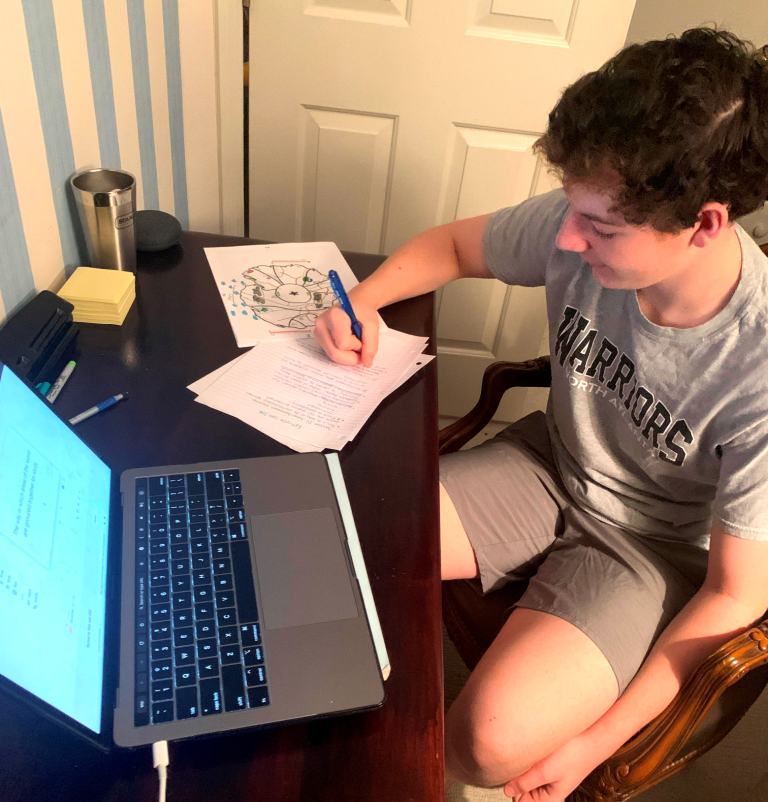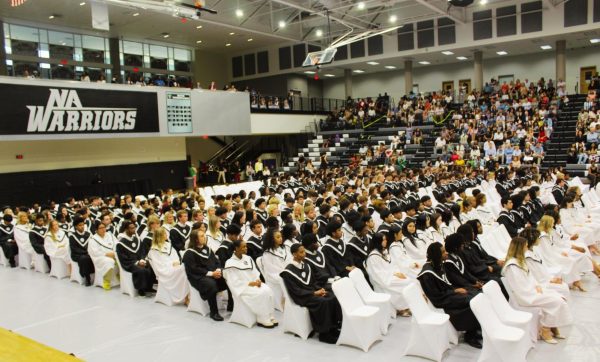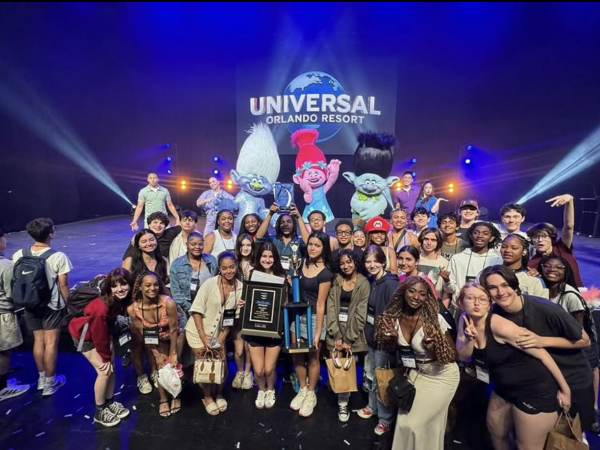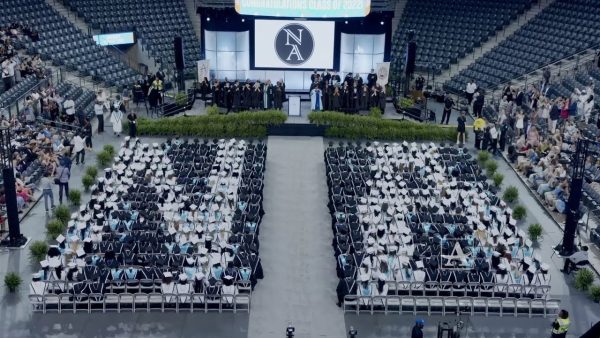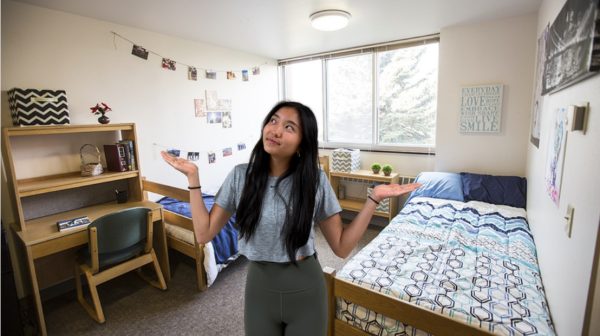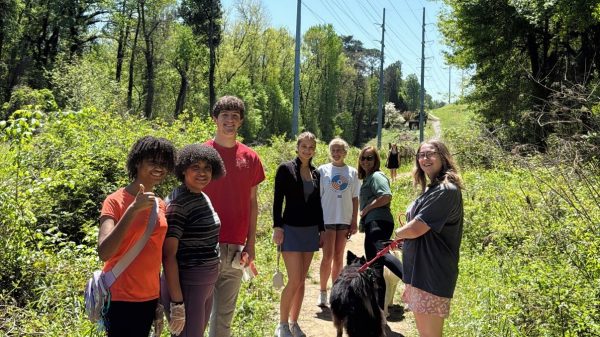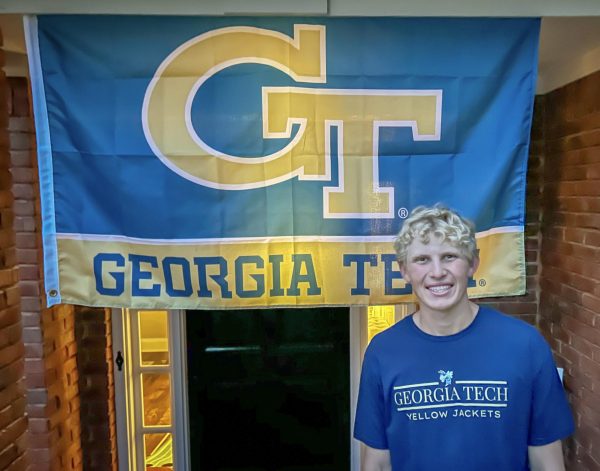North Atlanta Students Adjust to Remote Education in New Pandemic Era
Long-Distance Learning: Like so many other North Atlanta students, freshman Henry Peck has had to learn the ins-and-outs of distance-education platforms since the school went to remote status starting on March 17.
In wake of the ongoing coronavirus pandemic — brought to home most notably for all APS students with the sudden March 17 end to school-based classes — North Atlanta students have made the forced adjustment to remote learning.
As uncertainty about standardized testing and other course requirements loom heavily over the district, schools are doing their best to provide sufficient material through a variety of remote-learning platforms that include Zoom, Google Meet, and Google Classroom. “Remote” has become the new normal as both students, teachers and administrators contend with an unprecedented change in school-year schedules.
One of the main concerns of the district has been ensuring that all district students receive normal levels of schooling in their time away from their home buildings. At North Atlanta this has meant teachers hosting virtual classes, arrangements where both instructors and their students are comfortably ensconced in their homes.
This year’s winter semester featured a long — and rainy — stretch of weeks that without the usual week-long winter break that historically has been part of the district’s master calendar. In the face of the slog of classes and rain, complaints were many in the North Atlanta hallways and students were clamoring for a break. So when the “Corona Break” first hit, the novelty of learning at home seemed appealing to some.
But many say the initial attraction has since worn off. Students say they are bored and missing the normative hustle and bustle of the physical classroom along with the action associated with studying among 2,100 students in the city’s largest high school. Junior Jesus Moreno said he is already fed up with his online courses. “It’s really kind of been worse because the teachers give out so much work and expect us to know how to do it all,” he said. “They want us to wake up early to join then for a Google Meet when all we really want to do is just sleep.”
Some students say that sitting in front of a screen for hours at a time is not an optimal way to learn and that it’s hard for them to focus undivided attention in such an arrangement. Freshman Matthew Maiellaro said the remote arrangement has some inherent weaknesses. “It is much more difficult to learn over a computer rather than having the teacher talking to you in person and explaining it more clearly,” he said.
While virtual learning is not popular in all camps, some students say that online learning offers them freedoms they don’t have in a traditional setting with impossibly busy schedules and shuttling between classes. Junior Chase Malone said she’s been pleasantly surprised by remote-learning systems. “I like that I can work one my own schedule,” she said. “It’s also nice to be able to work from bed.”
Virtual learning is nobody’s ideal situation. But in true North Atlanta fashion, teachers and students are working to ensure that “teaching and learning” still is an ongoing reality even if being within the 11 Stories isn’t.


